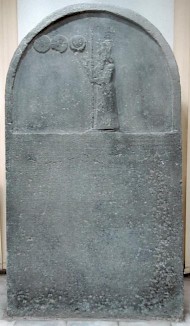Chaldaeans
Chaldaean dynasty: modern name for the last dynasty of independent Babylonia. Its kings ruled from 626 to 539.

In the early seventh century BCE, Babylonia, which had once been a mighty empire, had been subjected by Assyria. However, after the death of the mighty Assyrian king Aššurbanipal (in 631 BCE), the Babylonian general Nabopolassar successfully revolted. After the summer campaign of 626, he was crowned king, and in a series of wars, he founded the Neo-Babylonian Empire. The Assyrian capital Nineveh fell in 612.
His son Nebuchadnezzar expanded the new empire to Syria and Judah (Jerusalem was captured in 587). During his reign, Babylon became a beautiful city. After Nebuchadnezzar's death, however there was a crisis: in quick succession, three kings ascended to the throne. In the end, the old Nabonidus was recognized as sole ruler. The "strong man" behind his throne may have been his son Belshazzar.
Meanwhile, the Persians in the southeast had found a capable and ambitious leader, Cyrus. Descending from the Zagros, he attacked the Babylonian heartland and defeated the Babylonian army near Opis. Babylon, left without garrison, was forced to surrender.
| Nabopolassar | 626-605 |
| Nebuchadnezzar | 605-562 |
| Amel-Marduk | 562-559 |
| Neriglissar | 559-556 |
| Labaši-Marduk | 556 |
| Nabonidus | 556-539 |